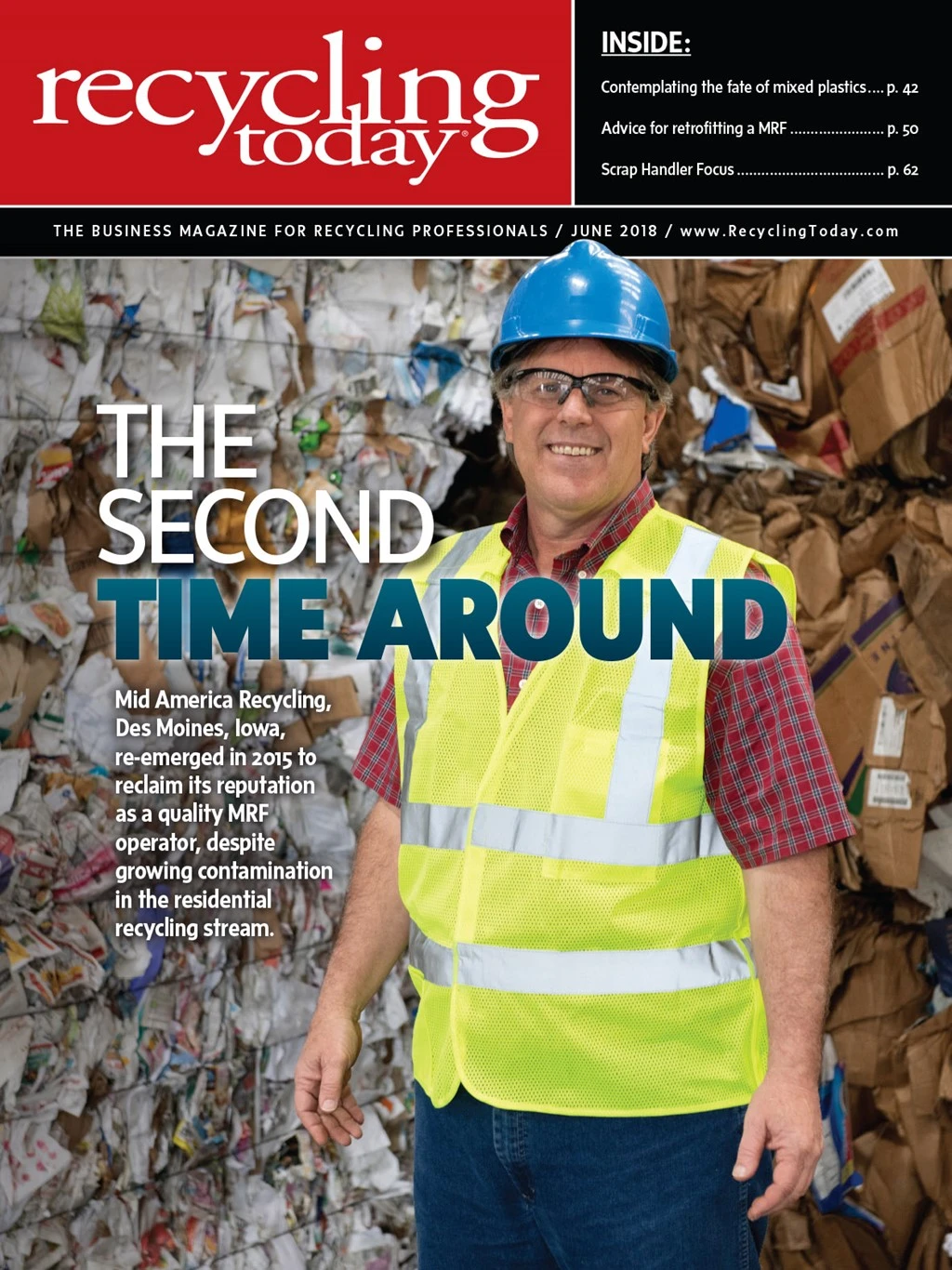
Recyclers of scrap materials rely on increasingly sophisticated technology to process and sort the stream of obsolete items that yield the ferrous, nonferrous and plastic scrap that goes right back into the productive economy.
Equipment and technology provider Eriez—based in Erie, Pennsylvania, but with offices and facilities around the world—has created a product line tailored to meet challenges faced by recyclers of automobiles, appliances, electronics and other complex scrap streams. (This includes its Rougher Cleaner Scavenger [RCS] eddy current separator system with specific settings designed to maximize zorba recovery in downstream auto shredder systems, pictured below.)
Eriez employs engineers and experienced product designers, developers and installers in the United States, Europe and Asia, fielding its own team of in-house talent that brings projects from the inquiry stage to installation quickly and with optimal results.
Eriez CEO Tim Shuttleworth and Executive Vice President of Global Technology Mike Mankosa say the company also has cultivated a culture of innovation, which includes partnering with university research departments to tap into additional intellectual and laboratory resources these academic institutions can provide.

Science departments with research capabilities at the University of Kentucky, the University of Utah and Virginia Tech each have worked in cooperation with Eriez to research specific aspects of metals and minerals separation that are related to scrap industry process development.
Eriez worked with Virginia Tech advanced degree candidate Scott Koermer on “circuit analysis” mathematics research to evaluate different auto shredder downstream separation configurations. (Koermer went on to work at a large auto shredding facility in the northeastern U.S. before recently returning to become a Ph.D. graduate assistant at Virginia Tech.)
“Eriez maintains contacts at many universities and works with faculty members to develop projects,” says Mankosa. “We typically bring the idea to them and they identify a high-potential graduate student.”
Eriez has cultivated a culture of innovation, which includes partnering with university research departments to tap into additional intellectual and laboratory resources these academic institutions can provide.
Projects at the University of Utah and the University of Kentucky involved electro-eddy current separators and rare earth minerals separation, respectively. A fourth recent project has involved partnering with the U.S. Department of Energy (DOE) and Fort Worth, Texas-based UHV Technologies Inc.
Eriez has partnered with UHV (which also operates under the name nanoRanch) and a large U.S. Midwest-based scrap firm to enter the DOE’s ARPA-E competition to explore advances in postshredder mixed metals sorting in light of China’s increasingly restricted market for those materials.
The message from Eriez is: If recyclers meet a processing or separation barrier, Eriez can call upon its many resources to meet the challenge.

Explore the June 2018 Issue
Check out more from this issue and find your next story to read.
Latest from Recycling Today
- LumiCup offers single-use plastic alternative
- European project yields recycled-content ABS
- ICM to host colocated events in Shanghai
- Astera runs into NIMBY concerns in Colorado
- ReMA opposes European efforts seeking export restrictions for recyclables
- Fresh Perspective: Raj Bagaria
- Saica announces plans for second US site
- Update: Novelis produces first aluminum coil made fully from recycled end-of-life automotive scrap






